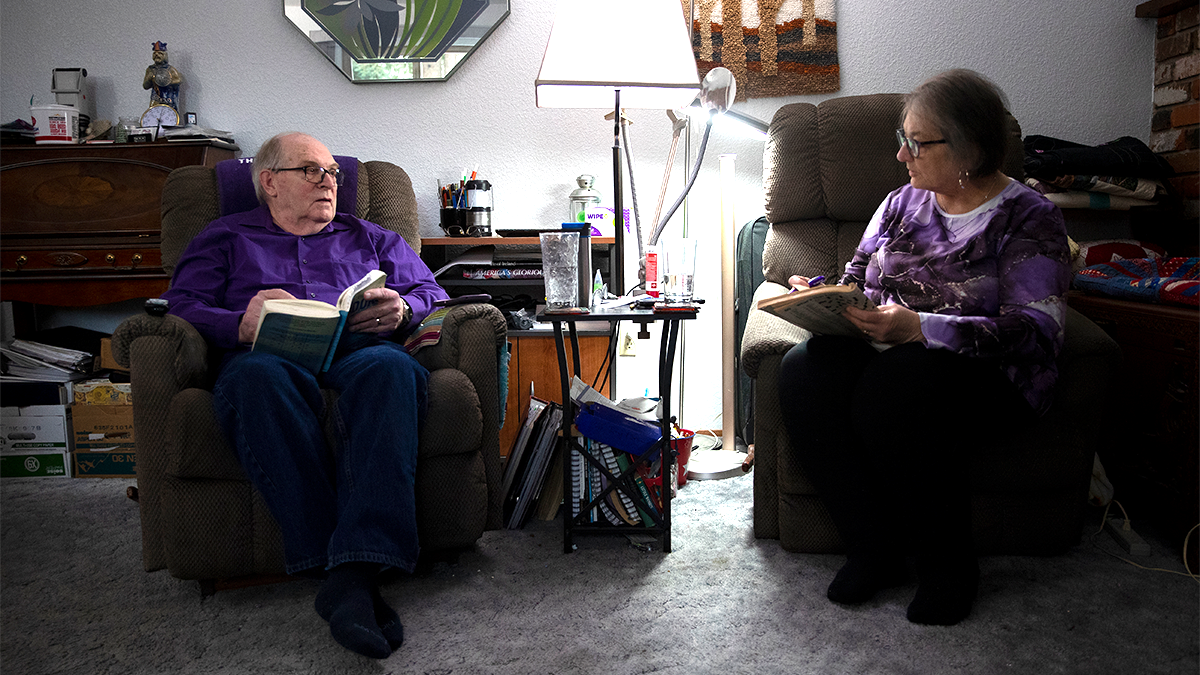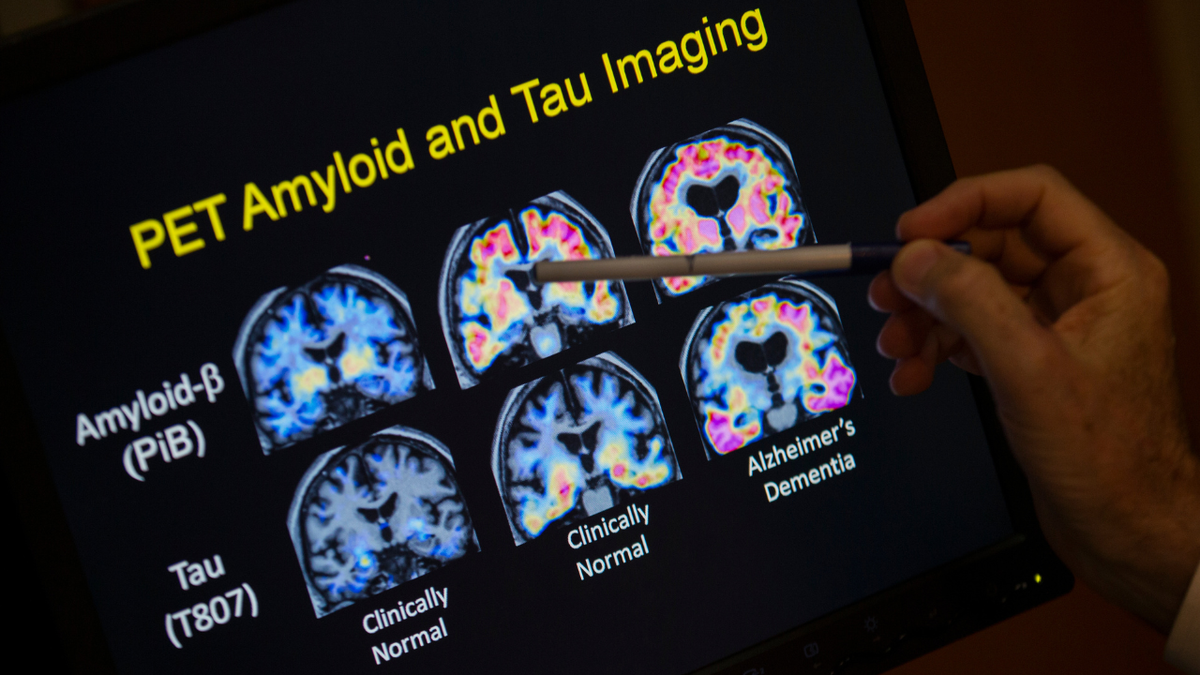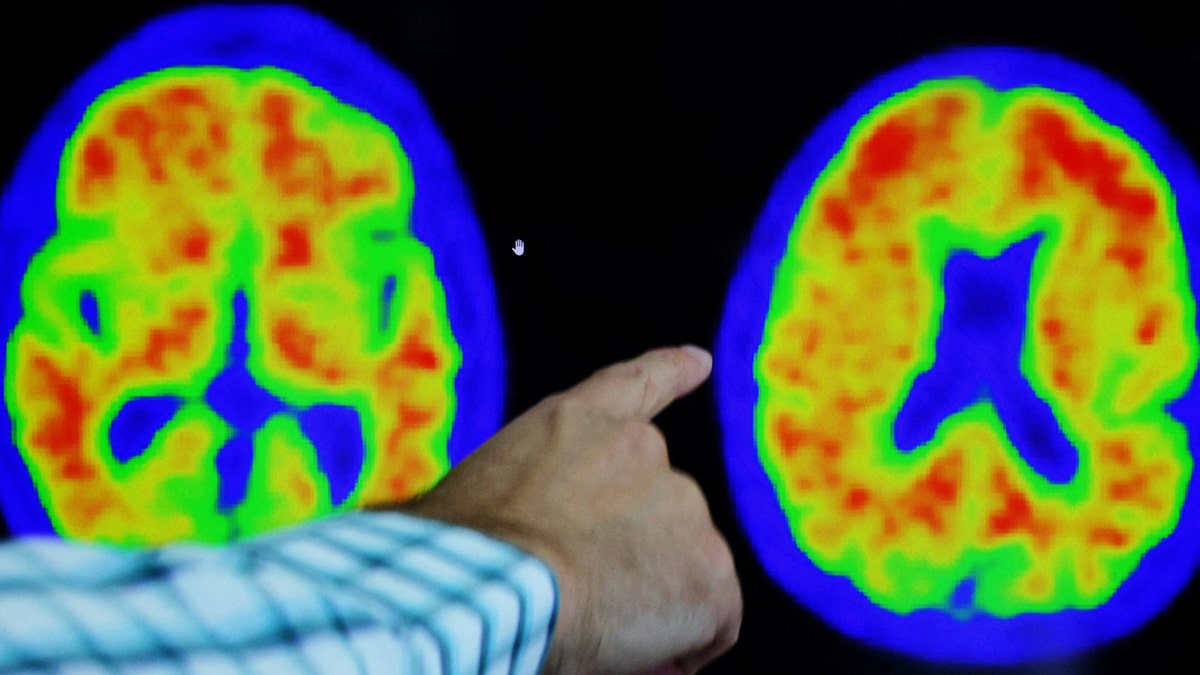

A Washington man appeared to be destined to develop Alzheimer’s disease — but against all genetic odds, he has eluded the common dementia for decades.
Researchers at the Washington University School of Medicine in St. Louis recently published a study focusing on Doug Whitney, 76, who lives near Seattle.
He has a rare inherited genetic mutation in the presenilin 2 (PSEN2) gene, which virtually guarantees early-onset Alzheimer’s.
STUDY REVEALS WHY ‘SUPER AGERS’ MAINTAIN ‘OUTSTANDING MEMORY’ INTO THEIR 80S
All of Whitney’s family members who inherited the gene have experienced cognitive decline starting in their early 50s or sooner, according to a WashU press release.
Whitney, however, shows no signs of mental decline. WashU researchers wondered if the reason for his continued cognitive health could help protect others against the disease.

Doug Whitney, Alzheimer's research participant, appeared to be destined to develop Alzheimer’s disease — but against all genetic odds, he has eluded the common dementia for decades. (UWash Medicine/Megan Farmer)
In a study published in the journal Nature Medicine, the researchers analyzed his genetic data and brain scans, identifying "changes in genes and proteins" that could explain how he has defied the odds to remain mentally sharp.
The researchers also discovered that Whitney’s brain had virtually no buildup of tau, the hallmark protein that signals the onset of cognitive decline.
NEW MRI BRAIN SCAN PREDICTS ALZHEIMER'S RISK YEARS BEFORE SYMPTOMS DEVELOP
"These extensive studies indicate a remarkable resistance to tau pathology and neurodegeneration," said senior study author Randall J. Bateman, M.D., the Charles F. and Joanne Knight Distinguished Professor of Neurology at WashU Medicine, in the press release.
Urged by his cousin, Whitney first came to WashU in 2011 to participate in a study focused on families with inherited forms of Alzheimer’s, as many of his relatives had developed early-onset disease. At the time, he believed he did not have the gene.
"He actually was able to escape the expected course of the disease."
Whitney’s mother was one of 14 children, nine of whom had the Alzheimer’s gene. Ten of them died before they were 60. Whitney’s own brother developed the disease before dying at age 55.
"I was 61 at the time — well past the age where it should have onset," he told Fox News Digital during an on-camera interview. "But they tested me, and lo and behold, I did have the gene. I was amazed."

In a study published in the journal Nature Medicine, the researchers analyzed Whitney's genetic data and brain scans. (UWash Medicine/Megan Farmer)
The researchers were just as "confounded," Whitney recalled.
"They tested me three times to make sure that there wasn't some slip-up. But it's true. I had the gene. And now I'm 76 years old and still haven't had any symptoms."
Jorge Llibre-Guerra, M.D., an assistant professor of neurology and co-first author of the study, echoed that it was a "big surprise" to learn that Whitney was a carrier of the genetic mutation — officially known as an "exceptional resilience mutation carrier."
"He actually was able to escape the expected course of the disease," he said in the release.
OMEGA-3 MAY HELP TO PROTECT WOMEN FROM ALZHEIMER’S DISEASE, NEW STUDY SAYS
Now, in this most recent study, the WashU researchers aimed to explore potential reasons for Whitney’s absence of Alzheimer’s.
"If we are able to uncover the mechanism behind this resilience, we could try to replicate it with a targeted therapy designed to delay or prevent the onset of Alzheimer’s, leveraging the same protective factors that have kept Mr. Whitney from developing this disease to benefit others," said Llibre-Guerra.

Doug and Ione Whitney often work on puzzles together to help maintain mental sharpness. (UWash Medicine/Megan Farmer)
Those who have the PSEN2 mutation tend to have an "over-production" of amyloid protein, which builds up in the brain during the first stage of Alzheimer’s, according to the researchers.
In the second stage, as symptoms of cognitive decline begin, there is typically a buildup of tau protein in the brain.
'MISSING LINK' TO ALZHEIMER'S DISEASE FOUND IN STUDY OF HUMAN BRAIN TISSUE
In Whitney’s case, brain scans showed a "significant accumulation" of amyloid, but almost a complete absence of tau.
One theory for how Whitney may have escaped his genetic fate stems from his time in the Navy.

The researchers discovered that Whitney’s brain (not pictured) had virtually no buildup of tau, the hallmark protein that signals the onset of cognitive decline. (AP Photo/Evan Vucci, File)
When the researchers analyzed Whitney’s cerebrospinal fluid, they found a "a significantly higher-than-normal level" of "heat shock" proteins, protective molecules that cells produce when they’re under stress, including high heat exposure.
During his many years of working as a shipboard mechanic in the Navy, Whitney was exposed to high temperatures for extended periods of time.
DEMENTIA RISK SLASHED WITH ONE COMMON HEALTH INTERVENTION, STUDY FINDS
"In the engine room of ships, the temperatures … would range from 100 to 110 degrees, for four hours at a time," he told Fox News Digital. "They concluded that possibly there was some gene or protein that could mutate and protect me genetically from the disease."
"We don’t yet understand how or if heat shock proteins may be mediating the effect," Llibre-Guerra noted in the release. "However, in this case, they may be involved in preventing aggregation and misfolding of tau proteins, but we do not know for sure."

"They tested me three times to make sure that there wasn't some slip-up. But it's true. I had the gene. And now I'm 76 years old and still haven't had any symptoms," Whitney said. (REUTERS/Brian Snyder/File photo)
The research was supported in part by the Dominantly Inherited Alzheimer Network, the National Institute on Aging and the Alzheimer’s Association, among others.
To help him stay sharp, Whitney often does crossword puzzles and Sudoko along with his wife.
"I think I’m pretty healthy at 76," he said. "I’m pretty active, and I hardly have any medications to take."
For those who are experiencing symptoms, Whitney recommends contacting the Alzheimer's Association.
"Get into research as soon as possible — the earlier you get in, the better chance you have," he said. "Don't give up. Nobody's alone out there anymore. There are lots of people waiting to help you."

"Looking at the advances they've made over the last 14 years — it’s amazing," Whitney said. "It's imperative that we keep going." (iStock)
Whitney said he is optimistic about the future of Alzheimer’s treatment.
"Looking at the advances they've made over the last 14 years — it’s amazing," he said. "It's imperative that we keep going."
Llibre-Guerra said he’s hopeful that the insights gleaned from Whitney’s case will spark broader studies — in both people and animals — aimed at uncovering the biological secrets behind his resistance to Alzheimer’s.
"As long as they need me, I’ll be here. I’m in it for the long haul."
"We have made all of the data we have available, as well as the tissue samples," he said. "If researchers want to request those to do additional analysis, that’s something we would welcome."
Whitney said he is committed to helping advance Alzheimer’s research, which his wife refers to as his "third career."
"It’s become my calling," he said. "When we go for testing, it's a pretty rigorous day, but after 14 years, I'm used to it now, so that's not a concern."
"As long as they need me, I’ll be here. I’m in it for the long haul."
Fox News Digital reached out to the researchers for comment.
